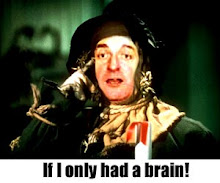Dr Mabuse, the Gambler
Earlier watched 'Dr Mabuse, the Gambler'. I noticed some of the stills on the cover were not on the box, while some storylines seemed garbled. Looking up Empire, I found that the 86 minute copy I have should be 246 minutes long! And the soundtrack was woefully inappropriate for the most part, Brahms chamber music sloppily added, with what I took to be the original score only coming in infrequently.
With it master of disguise arch-villain, obsessive police inspector, infatuated mistress, and sadistic killings, 'Dr Mabuse' takes all the elements that defined 'Fantomas' and revitalises them for a post-war age. Given that it came nearly ten years after the French film, I suppose it is hardly surprising that the German movie is infinitely more sophisticated. Modern though 'Fantomas' was in direction and style, 'Dr Mabuse' is as thrilling in execution as any of the other masterpieces that defined the work of Fritz Lang. Using animation, superimpositions, surreal sets, off-kilter camera angles, strange lighting, Lang makes his film a feast for the eyes. There is a shot of Mabuse in a sewer near the end that immediately reminded me of Harry Lime in 'The Third Man'.
Rudolf Klein-Rogge, the mad scientist Rottwang in Lang's later 'Metropolis', plays Mabuse as an even more brutish villain than Fantomas, discarding his humanity in a frenzied pursuit of pure power and control. In contrast all the other characters breathe as living people. Chief Inspector von Wenck (or De Witt as he's named in the inferior copy I watched) in particular is a more complex nemesis for Mabuse than the French Juve, even finding time to fall for a jaded aristocrat, Countess Told, while infiltrating secret clubs where 'whatever gives pleasure is permissable'. ( 'Cards or cocaine?' he is asked in one establishment.) For all that the version I saw was mangled, I saw more psychological realism in this script concocted by Lang and his co-writer/wife Thea von Harbou, than their later collaboration for 'Metropolis'.
In one word - and like the villain - mesmerizing!
Labels: Crime, Film, Fritz Lang, Horror


2 Comments:
There is a shot of Mabuse in a sewer near the end that immediately reminded me of Harry Lime in 'The Third Man'.
I read, in a Call of Cthulhu supplement, that the look and feel of The Third Man is very much modelled on German expressionist cinema, even if the plot is completely different.
Yes, you can see that, though in many ways it's German expressionism via Hollywood Noir. Robert Krasker, the cinematographer, was also responsible for Carol Reed's Irish-set, 'Odd Man Out', another stunning film to look at.
Post a Comment
<< Home